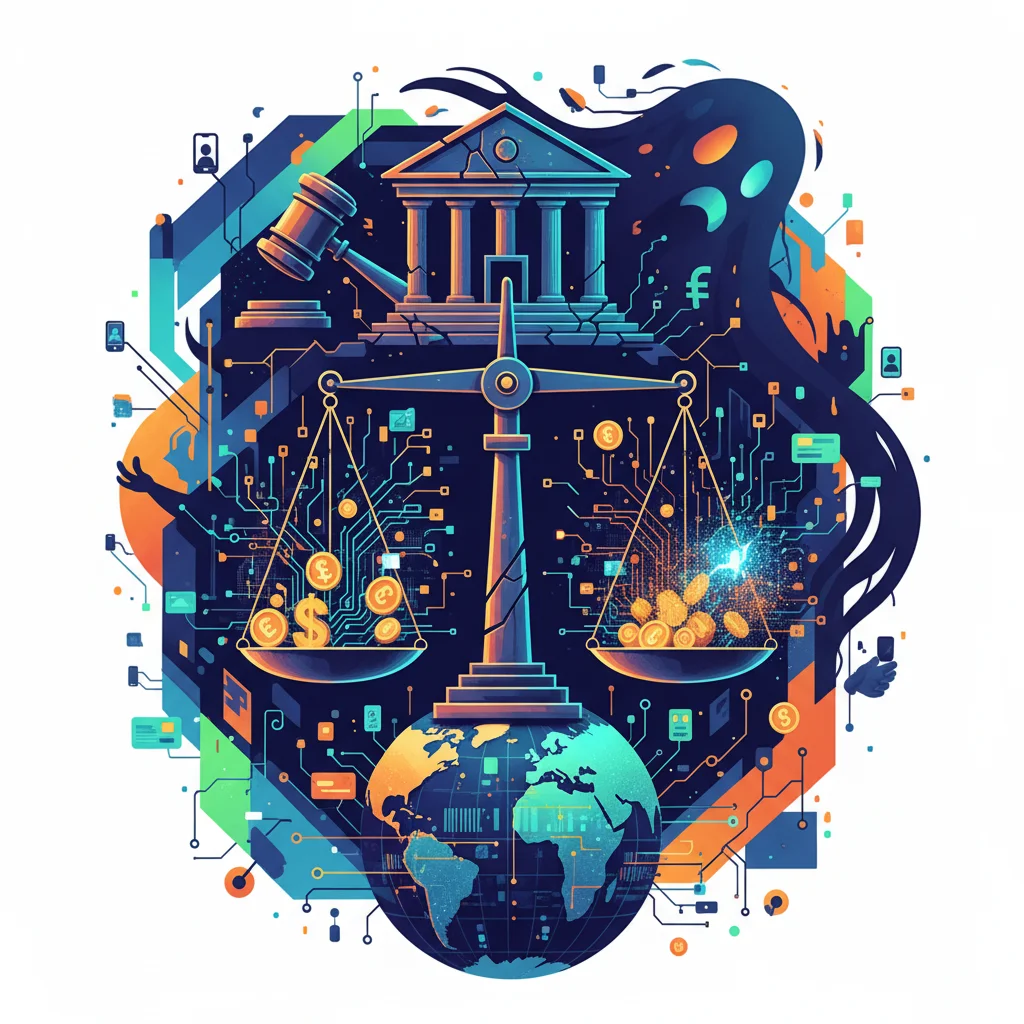
The Silent Epidemic: Why the Justice System is Losing the War on Financial Fraud
In the digital age, our financial lives are more interconnected and vulnerable than ever. We manage our investing portfolios from our phones, engage with cutting-edge fintech platforms, and participate in a global economy with the click of a button. But this convenience has a dark side: a burgeoning epidemic of financial fraud. And for the millions of victims left in its wake, the path to justice is often a dead end. A startling new analysis reveals a grim reality: the vast majority of fraud reports never result in a prosecution, suggesting a systemic failure that has profound implications for individuals, businesses, and the entire financial ecosystem.
The scale of the problem is staggering. Fraud is now the most common crime in many developed nations, yet it receives a fraction of the attention and resources dedicated to other offenses. According to a recent BBC report, this disconnect is starkly evident in the justice system’s response. The data suggests that for every thousand fraud reports filed, only a handful ever see a courtroom. This isn’t just a statistic; it’s a signal that criminals are operating with near-impunity, eroding public trust in our most fundamental institutions.
The Widening Gap: Understanding the Prosecution Failure
To truly grasp the severity of the situation, it’s essential to understand why the justice system is struggling to keep pace. The reasons are complex, stemming from the nature of modern crime, resource allocation, and jurisdictional hurdles.
First, the nature of fraud has evolved dramatically. Gone are the days of simple check forgery. Today’s criminals leverage sophisticated financial technology, operate across international borders, and use anonymizing tools like cryptocurrencies and the dark web. A single scam can involve perpetrators in one country, servers in another, and victims scattered across the globe. This makes evidence gathering a Herculean task for local and even national law enforcement agencies.
Second, there is a chronic under-resourcing issue. Fraud investigation is highly specialized, requiring forensic accountants, cybersecurity experts, and data analysts. These skills are expensive and in high demand in the private sector. As a result, police forces are often outmatched and overwhelmed by the sheer volume of cases. The abysmally low prosecution rate is a direct symptom of a system stretched beyond its breaking point.
The following table illustrates the typical “justice funnel” for a fraud case, showing how a large number of initial reports are whittled down at each stage.
| Stage in the Justice Process | Approximate Case Survival Rate (Conceptual) | Primary Reasons for Attrition |
|---|---|---|
| Initial Crime Report Filed | 100% | Victim reports the crime to authorities. |
| Case Assigned for Investigation | ~20% | Insufficient evidence, low monetary value, perceived as civil matter. |
| Suspect Identified | ~5% | Anonymity of perpetrators, cross-jurisdictional issues, use of shell companies. |
| Case Submitted for Prosecution | ~2% | Evidence doesn’t meet the high standard for criminal prosecution. |
| Charge and Conviction | <1% | Plea bargains, acquittal, procedural challenges. |
This funnel demonstrates that the problem isn’t a single bottleneck but a series of leaks throughout the entire process. Each stage presents significant challenges that prevent the vast majority of cases from reaching a resolution. Beyond the Battlefield: Ukraine's High-Stakes War on Corruption and Its Economic Future
The Ripple Effect: Economic and Investor Consequences
The failure to prosecute fraud is not a victimless administrative issue. It has profound and damaging consequences that ripple through the entire economy, affecting everyone from individual savers to institutional investors and leaders in the banking industry.
For Investors and the Stock Market
For those involved in investing and trading, this trend is a major red flag. It represents a significant increase in non-financial risk. Companies are prime targets for sophisticated fraud, from invoice redirection scams to major data breaches. When a publicly traded company reveals it has been the victim of a significant fraud, the impact on its stock market valuation can be immediate and severe. Investor confidence plummets, and the company faces reputational damage, regulatory fines, and costly remediation efforts. The low prosecution rate means the perpetrators are often not held accountable, creating a permissive environment for further attacks across the market.
For the Broader Economy and Banking
On a macroeconomic level, widespread, unpunished fraud acts as a tax on the entire system. Banks and financial institutions are forced to invest billions in fraud prevention technologies, costs that are ultimately passed on to consumers. It creates friction in commerce, necessitating more stringent and sometimes cumbersome verification processes. Furthermore, it erodes the foundational trust that underpins all economics. When people feel the system is rigged and that their money isn’t safe, they are less likely to save, invest, and spend—the very activities that fuel economic growth.
The rise of new technologies like blockchain was partly driven by a desire for more secure, transparent transactions. However, the crypto space has also become a hotbed for scams, and the jurisdictional ambiguity of decentralized finance makes prosecution even more difficult than in traditional banking. Beyond the Slopes: A Financial Analysis of Global Ski Property Investing in 2025
Forging a Path Forward: A Multi-Pronged Solution
Addressing this crisis requires more than just incremental changes. A fundamental rethinking of our approach to financial crime is necessary. The fight against fraud must be waged on multiple fronts: technological, legislative, and educational.
- Investment in Specialized Resources: Governments must treat fraud as the national security and economic threat it is. This means a massive injection of funding into dedicated economic crime units, equipping them with the talent—cybersecurity experts, data scientists, and forensic accountants—needed to tackle 21st-century criminals.
- Public-Private Partnerships: Law enforcement cannot do this alone. Deeper collaboration between banking institutions, fintech companies, and police is crucial. Financial institutions are on the front lines, with sophisticated AI and machine learning systems that can spot fraudulent patterns in real-time. Creating seamless channels to share this information with investigators is paramount.
- Legislative and Judicial Reform: The laws themselves need updating. Legislation must be adapted to address the realities of digital evidence, cryptocurrency, and cross-border data sharing. Furthermore, international cooperation must be strengthened to close the jurisdictional loopholes that criminals so expertly exploit. As one victim advocate noted, the system is failing to deliver justice for those who have lost life-altering sums.
- Enhanced Investor and Consumer Education: While systemic change is needed, individual vigilance remains the first line of defense. Greater public awareness campaigns can help people recognize the signs of sophisticated scams, from investment fraud to phishing attacks, making them harder targets.
This is not merely about catching more criminals; it’s about restoring faith in our financial and legal systems. The AI Chart-Topper: A Sound Investment or a Soulless Echo in the Market?
Conclusion: From Silent Epidemic to Public Priority
The chasm between the number of fraud victims and the number of successful prosecutions is more than a statistical anomaly; it is a declaration of failure. It tells criminals that their activities are a low-risk, high-reward enterprise. It tells victims that their losses, pain, and frustration do not warrant a meaningful response from the justice system. For the health of our economy, the stability of the stock market, and the future of financial technology, this cannot be allowed to continue.
Turning the tide will require a concerted and sustained effort from policymakers, industry leaders, and law enforcement. We must move fraud out of the shadows and treat it with the seriousness it deserves. Failure to do so will not only embolden criminals but will also corrode the very trust upon which our modern financial world is built.


